The year is coming to an end, and it's been quite a busy one here at blogis librorum! Thanks to everyone who has faithfully read, subscribed to, and commented on our blog this year--without you, we wouldn't have such a dynamic, engaging, and downright terrific online community for rare book lovers.
In case you missed any of the "action," we've compiled a list of the blog articles of 2013 you visted most. Take a gander, click each title and let us know which was your favorite:
1. The First James Bond? John Dee Was the Original 007! |
|
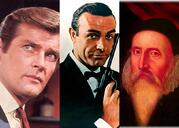 |
Centuries before Ian Fleming would write James Bond into existence, another man signed letters with "007." That man, John Dee, was a mathematician, astronomer, and (some say) magician. He was also a trusted member of Queen Elizabeth I's court. Some historians say that Dee was a spy for Elizabeth, thus making him an even more fitting inspiration for Ian Fleming's hero. |
2. A Quick Guide to JRR Tolkien's Middle Earth |
|
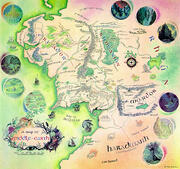 |
"Eala Earendel, engla beorhtast ofer middangeard monnum sended" The above quote comes from a line of Anglo-Saxon poetry. JRR Tolkien, a linguist and scholar of Anglo-Saxon culture, encountered the line in his research and became fascinated with the word "earendel." Though his Anglo-Saxon dictionary translated the word as "shining light," Tolkien believed that the word sounded like it came from a language "far beyond ancient English." |
3. Famous Authors' Words about New York City |
|
 |
For one weekend a year, the rare book community comes together for the New York Antiquarian Book Fair, the biggest book fair in the world. The fair is one of the many reasons that New York has become an epicenter of literary culture. Here's a look at what famous authors have thought of New York City. |
4. F Scott Fitzgerald Through the Eyes of Fellow Authors |
|
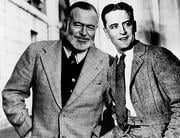 |
The new adaptation of "Great Gatsby" made an incredible splash in both the literary and film worlds. Starring Leonardo DiCaprio as Jay Gatsby and Carey Mulligan as Daisy Buchanan, the movie has been long awaited in circles of moviegoers and readers alike. The film brings a classic novel to a new audience, giving us a fresh perspective on the book that's often considered Fitzgerald's magnum opus. |
5. Thomas Harris, Hannibal Lecter, and a Literary Legacy |
|
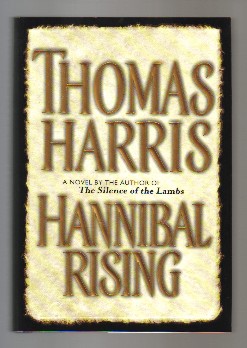 |
This year's television series "Hannibal" is inspired by Hannibal Lecter, the brilliant and fascinating serial killer-psychiatrist created by American author Thomas Harris. The series promises to draw audiences in just as the cinematic adaptations of Harris' novels have intoxicated so many of us. Indeed, Harris is one of the few authors whose novels have all been made into successful films. |
6. Of John Updike and Vladimir Nabokov |
|
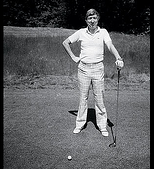 |
John Updike's uncanny ability to write beauty into the mundane earned him numerous literary accolades and a position as one of America's legendary authors. Updike drew influence from a wide variety of authors, but it is perhaps Vladimir Nabokov who most profoundly impacted Updike's work. Though the two authors never met, they openly admired one another's work. |
7. Famous Literary Hoaxes: Part One |
|
.jpg?width=122&name=chatterton-herald1_(1).jpg) |
Literary critics frequently argue that literature is full of frauds; there are plenty of authors, after all, whose work offers little substance or artistry. But the world of letters also has its share of true frauds: cheats, liars, and forgers. In some cases, these individuals were merely mischievous pranksters, but in others they hoped to profit from their malevolent handiwork. Here's a look at some of the biggest literary hoaxes of all time. (You may also like Part Two and Part Three) |
8. Iconic Photographs of Ernest Hemingway |
|
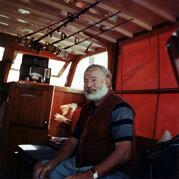 |
On July 22, we celebrated the birthday of legendary author and adventurer Ernest Hemingway. After a stint as a soldier, Hemingway went on to redefine American literature. Always the adventurer, Hemingway loved big game hunting and fishing. His exploits took him around the world and made him a living legend. |
9. A New View of Mark Twain |
|
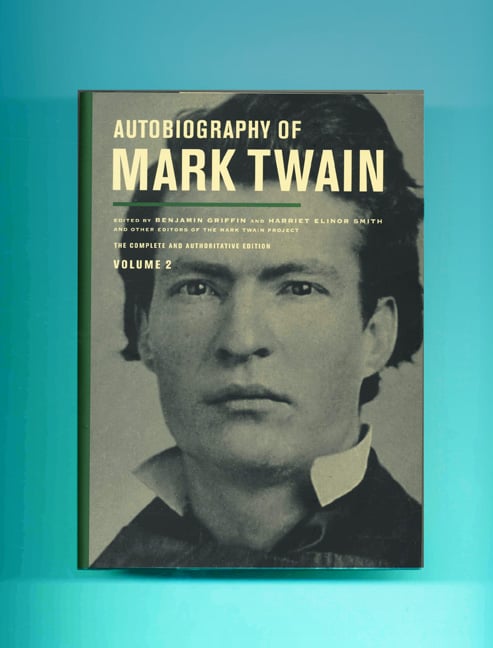 |
"From the first, second, third, and fourth editions, all sound and sane expressions of opinion must be left out. There may be a market for that kind of wares a century from now. There is no hurry. Wait and see." The much awaited second volume of The Autobiography of Mark Twain was recently released. The autobiography offers a new--and often surprising--view of Mark Twain, often called the most American of American authors. |
10. Franklin Library Editions: Ideal for Collectors? |
|
.jpg?width=143&name=travels_franklin_(1).jpg) |
The Franklin Library, affiliated with the Franklin Mint, produced classic books, designed especially for collectors. Many of these publications have become more scarce over the years, but they've remained perennial favorites among many collectors. The Franklin Press was established in Philadelphia in 1973, where it remained until closing its doors in 2000. All books were designed and bound by The Sloves Organization, one of the few binderies solely dedicated to fine leather book binding. |
11. Q & A with Pieter Collier, JRR Tolkien Expert |
|
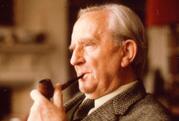 |
To celebrate the birthday of legendary author JRR Tolkien, we sat down to talk with Pieter Collier, leading Tolkien collector and scholar. Since 2002, Collier has maintained The Tolkien Library, a website dedicated to all things JRR Tolkien. Collier has been fascinated with Tolkien since childhood, and he's built an incredibly impressive collection around the author. |
12. Umberto Eco as Consummate Book Collector |
|
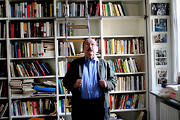 |
Umberto Eco has made quite a name for himself as a philosopher, author, and semiotician. He's also earned a reputation for being an enthusiastic collector of rare books. Eco has amassed tens of thousands of books, and always observes that he hasn't read most of them. Yet his personal library plays an important role for him as a writer, informing his books with a unique--and fascinating--intertextual layer. |
13. Did Charles Dickens Want a Different Ending for Great Expectations? |
|
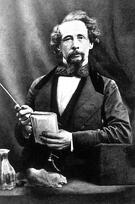 |
Charles Dickens began writing Great Expectations in 1860. According to his friend and biographer John Forster, Dickens indicated in a letter around October 12, 1860, that he intended the new novel to be "humorous and droll." Clearly the book took a different turn--including a final one after Dickens had already submitted the final chapters to the printer in June 1861. At the advice of a trusted friend, Dickens changed the ending to Great Expectations,a decision that has intrigued critics and collectors ever since. |
14. Who Was the Real Frankenstein? |
|
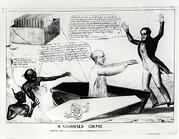 |
The rather well known story is that “Frankenstein” was the scary ghost story creation of nineteen-year-old Mary Shelley in a contest to create the scariest ghost story as a guest at the Lord Byron’s Italian villa. However, there may be significantly more to the story. There were four separate European scientists who may perhaps have played muse to Mary: Luigi Galvani, Giovanni Aldini, Andew Ure, and perhaps most influentially, Johann Konrad Dippel. |
15. AA Milne's Complicated Relationship with PG Wodehouse |
|
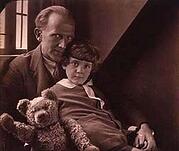 |
Today marks the birthday of Alan Alexander Milne, best known for creating the characters of Winnie the Pooh, Christopher Robin, and company. Yet AA Milne wrote much more than children's stories; he penned detective novels, screenplays, and poetry. His complex relationship with PG Wodehouse had a signficant impact on both authors, but frequently gets overlooked. |
We're excited about another terrific year of blogging, Facebook-ing, tweeting, and Google+-ing with you! Have a wish for a blog article? Let us know! in the comments, tweet it, Google+ it, Facebook it. We welcome your suggestions.








